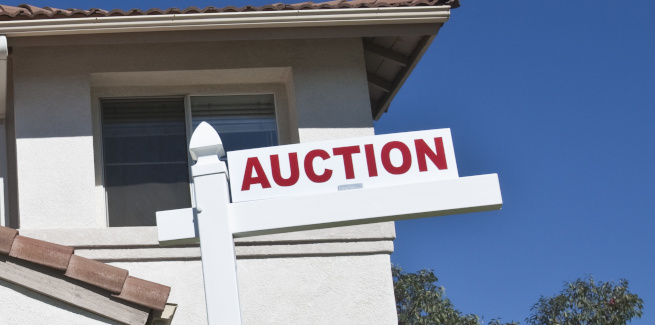CoreLogic has released a report on the housing market through pandemic lockdowns, which has revealed that in Sydney, the percentage of properties sold before auction surged to 35.2 per cent for the two weeks ending 4 July, up from 23.1 per cent over the past five years.
This proportion also rose to 28 per cent during stage 2 restrictions in 2020.
Meanwhile, the proportion of properties sold at auctions in Sydney declined from the pre-COVID-19 series average of 44.1 per cent to 32.3 per cent during the 2020 stage 2 restrictions and 36.3 per cent during the Greater Sydney lockdown in June/July 2021.
More Sydney properties have also been selling after the auction event during lockdown than the historic average, up from the series pre-COVID average of 0.8 per cent to 3.1 per cent during the current lockdown and 1.9 per cent during the 2020 stage 2 lockdowns.
Melbourne figures have revealed that more properties sold prior to auction during circuit-breaker restrictions compared with other lockdowns.
For example, the percentage of auctions sold prior rose in Melbourne from a pre-COVID series average of 12.9 per cent to 32.2 per cent during the mid-February 2021 circuit-breaker lockdown and 34.3 per cent during the June 2021 circuit-breaker lockdown.
The proportion of properties sold prior to auction rose to 23.4 per cent during the stage 2 restrictions and 26.7 per cent during the stage 3 and 4 restrictions in 2020.
However, figures for properties sold after auctions varied during the different restriction phases in the Victorian capital city.
Dwellings sold after auction rose from the pre-COVID series average of 1.3 per cent to 2.2 per cent during the February circuit-breaker lockdown, 2.1 per cent during the stage 3 and 4 restrictions, 1.9 per cent during stage 2 restrictions and 1.7 per cent during the June circuit-breaker lockdown.
The report observed that: “Agents may have adapted to getting deals done prior to planned auctions, which may have become easier as property market conditions began to recover from October 2020.”
It also attributed the rise in properties sold after the auction during lockdown to a “function of the recovery in the market from October 2020, where auctions were more likely to eventually sell than pass in”.
According to CoreLogic, a higher proportion of properties sold at auctions during circuit-breaker lockdowns than longer restrictive periods, which was driven by agencies adopting and refining online or over-the-phone methods of hosting auctions.
For example, only 9 per cent of properties sold at auctions during stage 2 restrictions, while 20.8 per cent sold during stage 3 and 4 restrictions in Melbourne last year.
This figure rose to 36.2 per cent during the February circuit-breaker lockdown, and 32.1 per cent during the June circuit-breaker lockdown.
“Many real estate agents are now running both physical and online auction formats in parallel, making it easier for prospective buyers to participate in the auction event should restrictions be implemented,” the report said.
“However, it is hard to separate the success of these online formats, with the fact that circuit-breaker lockdowns have coincided with periods of much stronger housing market demand.”
More properties were withdrawn during lockdowns, either transitioning to private treaty listings or a pause in the auction campaign.
Withdrawn auctions in Melbourne spiked from a five-year average of 2.7 per cent to 54.3 per cent during stage 2 restrictions, and 37.8 per cent during stage 3 and 4 restrictions, but was slightly lower during the circuit-breaker restrictions (25.3 per cent in mid-February and 25 per cent at the start of June).
Home values jump 12.2 per cent in 2021
Meanwhile, housing market values had a peak-to-trough decline of just 2.1 per cent through 2020, before surging by 12.2 per cent in the first six months of 2021.
Commenting on the spike, CoreLogic head of research for Australia Eliza Owen said that this was due to the “unique dynamics” of the COVID-19-induced lockdown.
“It is true that demand takes a hit during lockdowns,” she said.
“There was a lot of uncertainty amid stage 2 restrictions nationally last year, and sentiment for housing market outcomes plummeted.
“But supply also declined, because sellers and agents knew it may not be the best time to market property. That helped to balance out the overall effect on prices.”
However, Ms Owen said that the housing market values did not decline further because of the significant support packages provided to households, the role of JobKeeper in maintaining employment relationships, record-low interest rates, and mortgage repayment deferrals.
However, she warned: “In the event of another extended lockdown, the future of housing demand and supply becomes much less certain if that same government and institutional support is not there.”
[Related: Property prices grew by 13.5% in FY21: CoreLogic]

